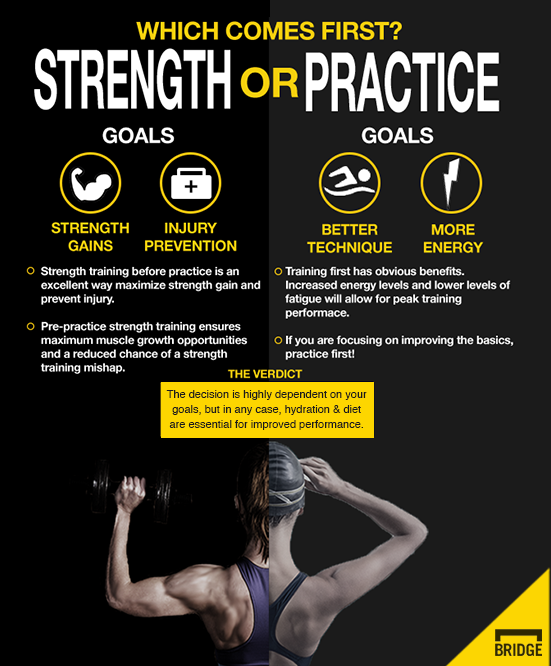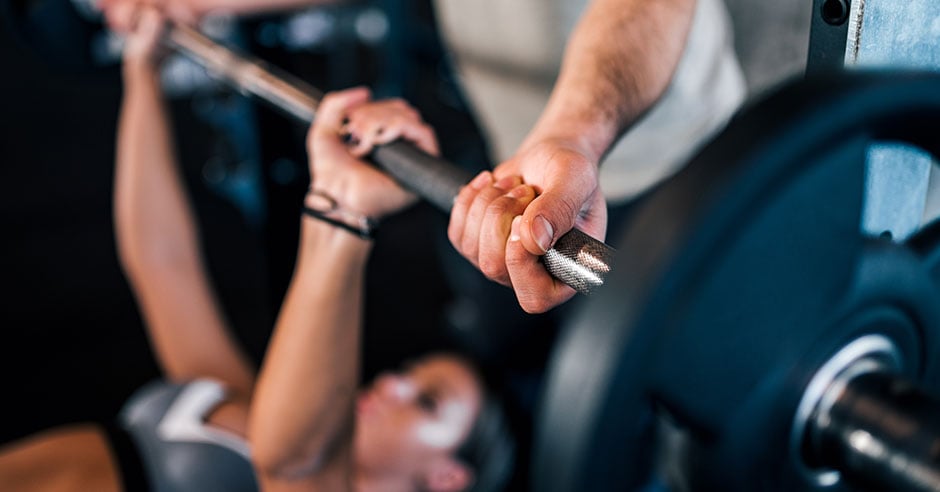Is it Best to Strength Train Before or After Practice?
Many athletes and coaches wonder whether strength training produces better results when performed before or after practice. In many sports, practice is the cardiovascular portion of a workout, and combining cardio with strength training in one session can be extremely taxing to the body. Importantly, there is little scientific research to date favoring one method over the other, but read more to learn about both theories in context.
Before Practice
If an athlete’s primary goal is to build strength, it can be argued that they should complete their strength training prior to their practice. During exercise, the body releases stored energy called glycogen to supply fuel to working muscle fibers.
Whichever form of exercise is completed first will deplete those glycogen stores as the body uses its preferred form of energy right away, leaving the second portion of the workout with less available clean energy to burn. It is important for athletes to refuel between these parts of the workout with part of a bar or energy drink to avoid low energy levels.
To focus on building strength, complete strength training first when your muscles are most able lift weights.
After Practice
However, cardiovascular training can make the blood more acidic. As athletes exercise, the body creates lactic acid, which is helpful in replenishing energy fuel sources so athletes can continue to exercise.
However, an excess of hydrogen ions builds up even as the body attempts to buffer them, leading to a more acidic environment. This leads to muscle fatigue. Cardio before strength can reduce your ability to maximally contract your muscles.
The Best Time
Injury prevention is important to consider when deciding when to strength train. Athletes may have better technique on strength exercises when their muscles are the freshest.
There are a number of stabilizing muscles that assist with any particular movement. If athletes complete their cardio first, these muscles may become fatigued, meaning the body may not effectively recruit them to support each strength exercise and you may put yourself at risk of injury due to improper form.

Recap
With these considerations in mind, strength training before practice may help athletes develop the strength they are looking for in a safe and effective manner. Regardless of how training is organized, athletes need to weigh their options and evaluate which would work best for their situation.
Another important factor for athletes to consider is how they plan to replenish their body, post-workout so that their training doesn’t go unnoticed. To learn more about ways to improve athletic performance, read this article discussing three different kinds of protein drinks and their benefits, and for post-workout recovery, read this article on how ice baths can increase recovery speed.
Related Posts

The Best Bench Press Variation You’re...
This post is part of our Coaches Corner series with Taylor Rimmer. Taylor is NSCA-CPT, StrongFirst...

Does Powerlifting Harm Heart Health?
A recent study has discovered that a 12-week supervised strength training program (SSTP) may result...
-1.png)
Barefoot Running: Is It For You? |...
Run Free: Consider Less Cushion
Updated October 2020:
With more athletes looking for ways to...



